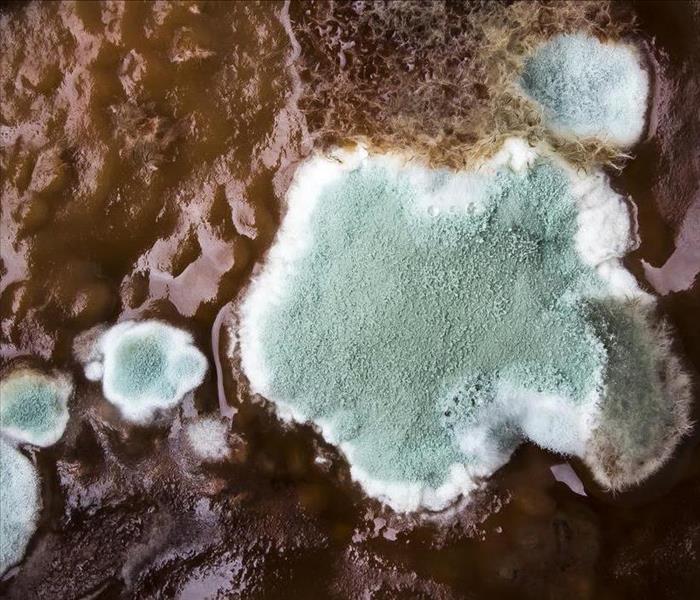Tips For Managing Mold In Your Greenville, NC Home Or Business
9/28/2020 (Permalink)
Eastern NC has a notoriously humid subtropical climate and the Greenville, Winterville and Snow Hill area is no exception. This near constant moisture and heat means mold excels at growing where you don’t want it. Being national leaders in residential and commercial remediation, the SERVPRO team has a significant amount of experience dealing with mold and we are more than happy to share some of our professional wisdom.
Ten Things You Should Know about Mold
- As many know, mold may cause potential health effects, depending on the type and individual sensitivity.
- There is no practical way to eliminate all mold and mold spores in the indoor environment; instead, prevention of mold spores from growing is key.
- If mold is a problem in your home or business, remediation and eliminating excess sources of moisture are crucial. Leaving it untreated will only allow it to spread.
- Most cases of mold that we are called to help with are from a leak; finding the source of the water problem is absolutely necessary to prevent further mold growth. If you’re unsure where the leak is coming from, contact a plumber who also offers leak detection!
- Reduce indoor humidity, typically between 30-60% to decrease mold growth by:
- Venting bathrooms, dryers and other moisture-generating sources to the outside
- Using air conditioners and de-humidifiers
- Increasing ventilation
- Using exhaust fans whenever cooking, dishwashing and cleaning
- Clean and dry any damp or wet building materials and furnishings within 24-48 hours to prevent mold growth.
- Clean mold off hard surfaces with warm water and detergent, and dry completely. Absorbent materials such as ceiling tiles, if moldy, may need to be replaced.
- Prevent condensation: Reduce the potential for condensation on cold surfaces (i.e., windows, piping, exterior walls, roof, or floors) by adding insulation.
- In areas where there is a perpetual moisture problem, do not install carpeting (i.e., by drinking fountains, by sinks, or on concrete floors with leaks or frequent condensation).
- Molds can be found almost anywhere; they can grow on virtually any substance, providing moisture is present. There are molds that can grow on wood, paper, carpet, and foods and all need to be remediated as soon as you are aware of the issue. Waiting will only cause more damage and in return cost you more money in repairs.
If you have any questions or would like to schedule service, give us a call at: (252)-329-7205.



 24/7 Emergency Service
24/7 Emergency Service
